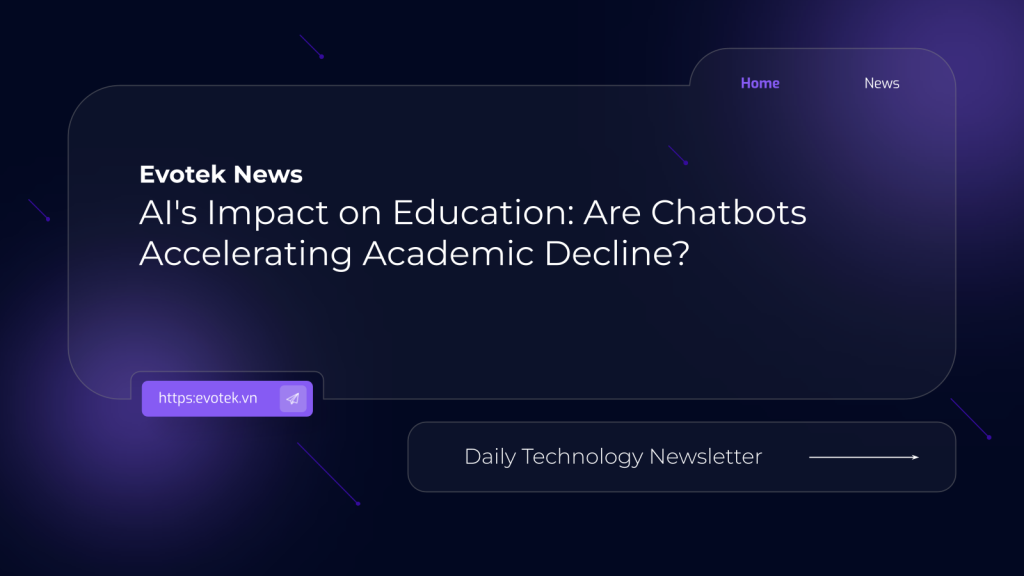The rapid advancement of artificial intelligence has promised to revolutionize numerous sectors, but its influence on education is raising serious concerns. Is AI truly disrupting education, or is it fostering a decline in critical thinking and genuine learning?
A recent report in New York magazine sheds light on the growing trend of students leveraging AI tools like ChatGPT to bypass traditional academic work. The article features anecdotes, including the story of Chungin “Roy” Lee, a Columbia University transfer student who openly admits to using ChatGPT for his college application essay and subsequent assignments.
Lee’s perspective highlights a cynical view of higher education, where networking and social capital are prioritized over actual learning. He stated that most assignments are “hackable by AI” and not relevant, leading him to offload his learning to a robot. This raises the question: if education is perceived as a game, why not exploit AI to win it as efficiently as possible?
The ease with which AI can be used for cheating has caught many educational institutions off guard. A 404 Media investigation, based on FOIA requests, revealed that ChatGPT has become a significant challenge for American education. Initially, some school districts were even encouraged by “pro-AI consultants” to integrate generative AI into classrooms. Presentations promoted the idea of rethinking plagiarism and using AI to assist with essay writing, even suggesting that traditional essay writing methods could hinder students’ future readiness.
This “transformation” appears to be impacting both students and teachers. College professors are reportedly using chatbots to create lesson plans, mirroring students’ use of AI to complete assignments, according to The New York Times. The consequence is a potential cycle of decreasing intellectual capacity, where reliance on AI diminishes the ability to think independently.
The concern is that individuals will become increasingly dependent on AI to perform tasks they once could accomplish on their own. This dependence mirrors a subscription-based model, where intellectual capacity becomes a service, eroding “organic” abilities. The ultimate outcome could be a future where AI is directly integrated into the brain, rendering traditional education obsolete.
Keywords: AI in education, ChatGPT, academic decline, cheating, educational disruption, artificial intelligence, lesson plans, critical thinking, higher education.
Related Articles
- OpenAI Releases New Coding Tool: Revolution or Replacement for Programmers?
- Microsoft Responds to Claims of AI Misuse in Gaza Conflict
- Elon Musk’s xAI Investigates Conspiracy Theory Outburst by Grok AI

 日本語
日本語 한국어
한국어 Tiếng Việt
Tiếng Việt 简体中文
简体中文